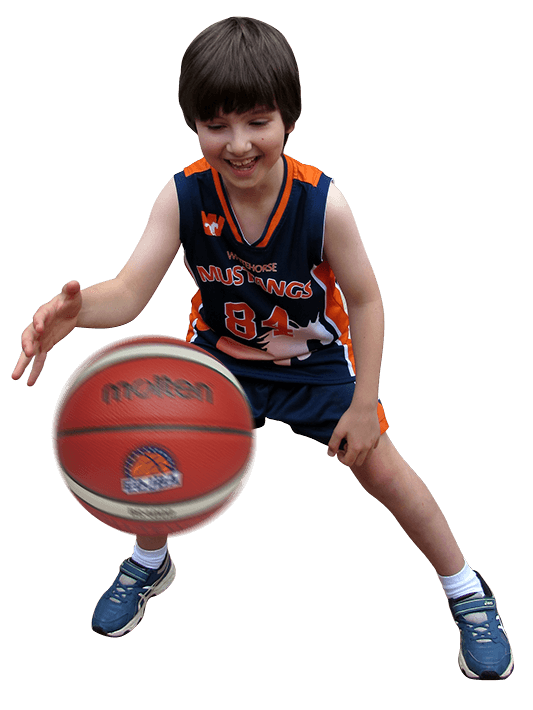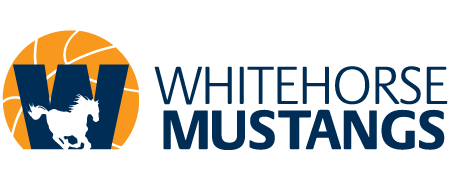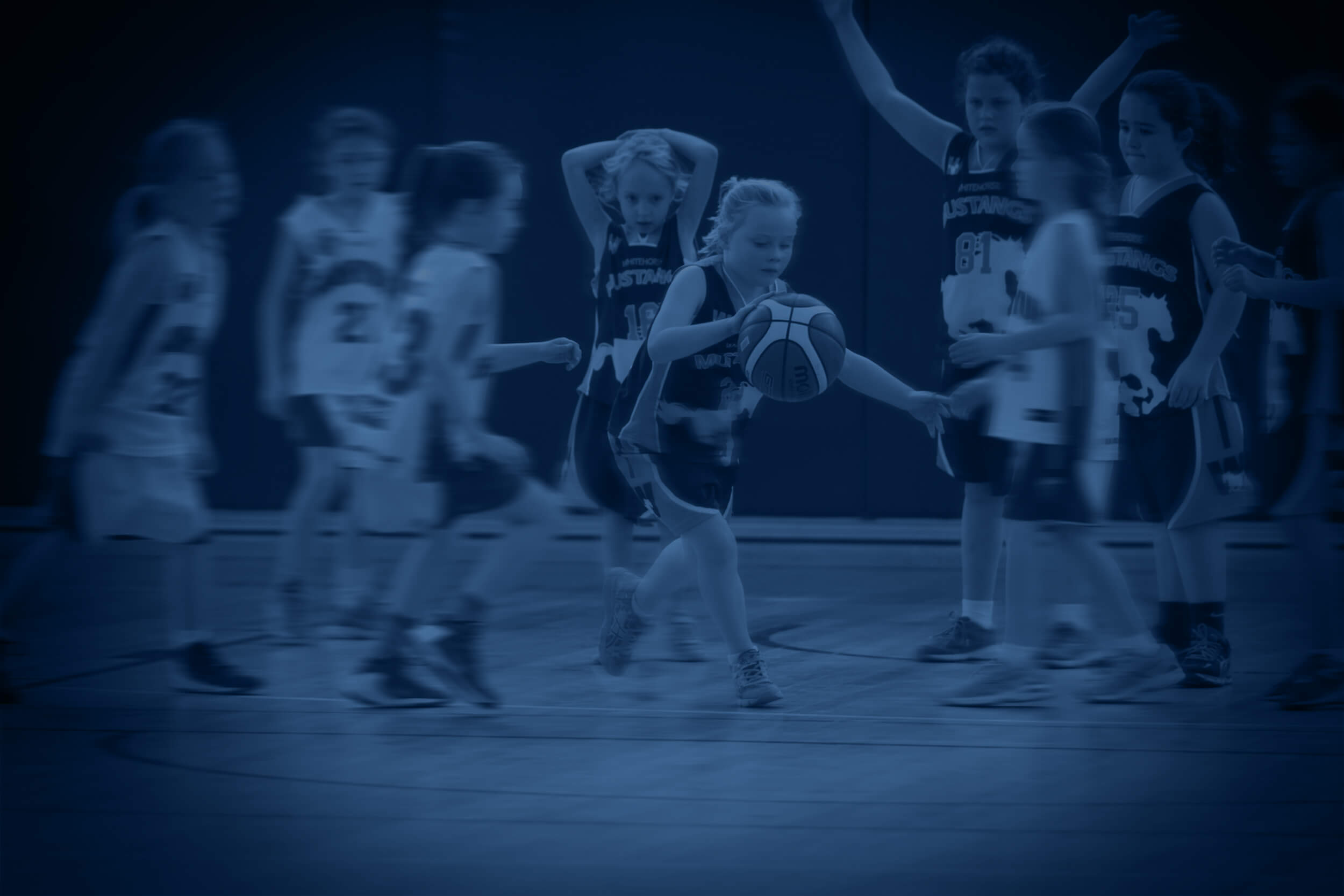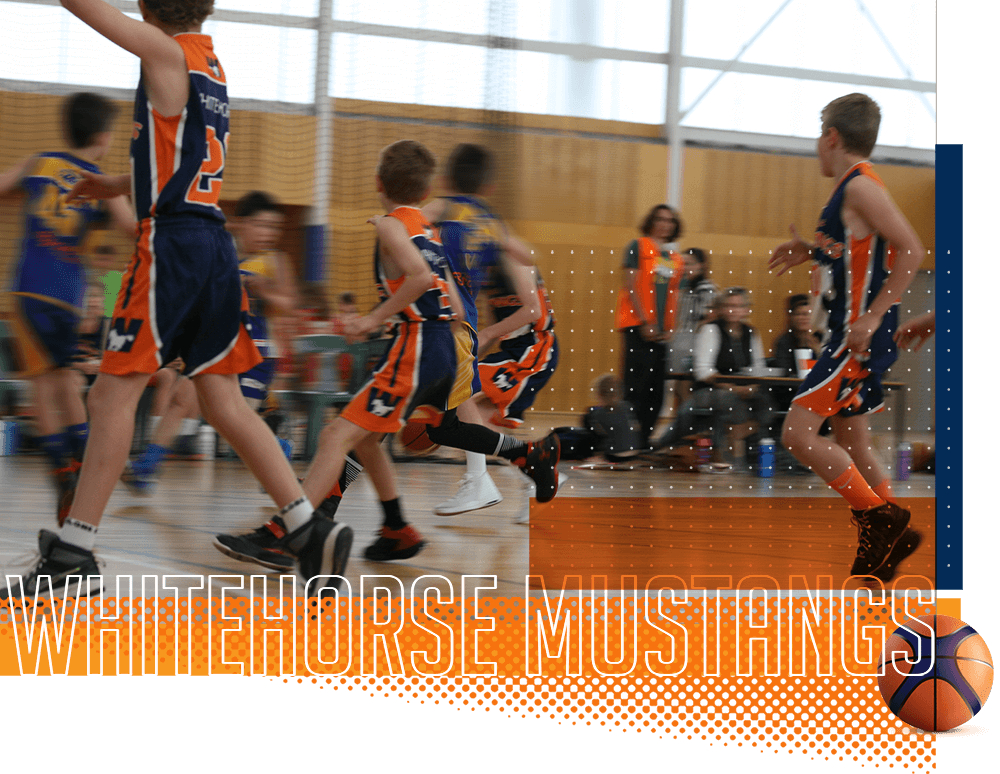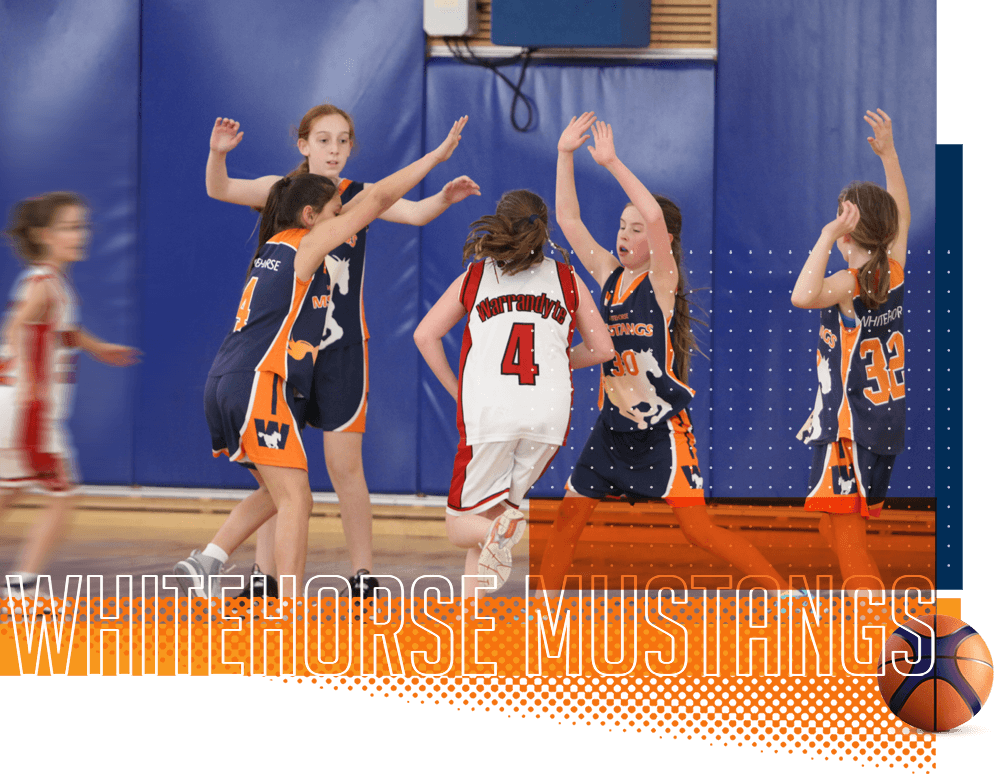
WABA Child Safety Policy and Procedure Approved February 2024 Page 1 of 13
WHITEHORSE AMATEUR BASKETBALL ASSOCIATION
CODE OF CONDUCT
Adapted/Written By: Tamara Melville, then Child Welfare Officer
Approved By: Sally Bird, Club President
Endorsed By: Rachel Ollivier, Club Secretary
Date for Next Review: September 2026
Purpose
This policy demonstrates the strong, ongoing commitment to child welfare and safety by management, staff and volunteers of
the Whitehorse Amateur Basketball Association – Whitehorse Mustangs (the Club). We all have a responsibility to protect children
in our community and our Club. Our association is committed to the wellbeing, safety, participation and empowerment of all
children.
This document includes both the child safety policy and procedure, and are active, ethical frameworks intended to provide an
outline of the policies and practices the Club will uphold to keep everyone safe from all types of harm and abuse, and to continue
to create a child safe organisation in which all people can thrive.
As per the Basketball Victoria Child Safeguarding policy and Victorian Department of Human Services Child Safe Standards, the
Club is working to be compliant and to enact all possible and necessary protective measures. With this policy and the Child Safe
Procedures, our association aims to provide children and young people with safety and protection whilst in the care of the Club,
to promote high standards of care and good practice, and to assist staff and volunteers to make informed and confident responses
to specific child safety issues if/when they may arise.
Commitment to Child Safety
All children have a right to feel and be safe. The welfare and protection of the children in our care will always be our first priority.
Our Club has zero tolerance for child abuse in its varied physical, sexual, emotional or psychological forms. The Club is
committed to creating a child friendly environment where children feel safe and have fun, and the Club’s activities are always
carried out in the best interests of the children.
In Basketball and at this Club, everyone must operate within our accepted ethical frameworks, these include Basketball Victoria’s
Codes of Conduct, Basketball Victoria’s Member Protection Declaration, State Government Working With Children Check, this
Child Safety and Procedures Policy.
Our association will continue to implement compliance standards and strategies to embed an organisational culture of Child
Safety and Wellbeing.
This document was developed utilising and adapting content from: The Commission for Children and Young People (2016),
Child Safety Standards Jan 2023 and Child Safeguarding Policy of Basketball Victoria Feb 2023.
Application of this Policy
This policy was adapted and developed by the Club’s initial Child Welfare Officers, Maria Katergaris and Sandy De Bortoli, in
collaboration with Whitehorse Amateur Basketball Association management, staff, volunteers, the child members who use our
WABA Child Safety Policy and Procedure Approved February 2024 Page 2 of 13
services, and their parents. In 2024 this policy has been adapted from the Basketball Victoria’s Child Safeguarding Policy
published June 2023.
This policy applies to all individuals involved in our organisation (paid and volunteer) including, but not limited to:
● Management (All Executive and General committee members)
● Venue Supervisors
● Coaches
● Team Managers
● Participants
● Parents
● Spectators
People to whom this policy applies need to be aware that child maltreatment can occur whenever there is actual or potential harm
to a child, and these are circumstances that the Club takes very seriously in our commitment to reducing the risk of abuse and
poor practice.
All of the people to which this policy applies have a role and responsibility to safeguard children from harm and abuse. They must
all:
● understand the various types of harm that can be inflicted on children by adults and other children.
● understand the indicators and risks of child abuse.
● appropriately act on any concerns raised by children; and
● understand and follow all applicable laws in relation to the protection of children and reporting or management of child
safety concerns.
1. DEFINITIONS
1.1. Defined terms not otherwise defined in this Policy have been defined in and have the meaning given to them, in
the Basketball Australia National Integrity Framework.
In this Policy the following words have the corresponding meaning:
‘Australian Child Protection Legislation’ means all state/territory child protection legislation as amended from time to time.
‘Bullying’ means a person or group of people repeatedly and intentionally using words or actions, or the inappropriate use of
power, against someone or a group of people to cause distress and risk to their wellbeing.
‘Child or Children’ means a child or young person, or two or more children or young persons, who is or are under the age of 18
years.
‘Child Abuse’ means any type of abuse (including physical, emotional, psychological, sexual and inappropriate use of power)
that has caused, is causing or is likely to cause harm to a person’s wellbeing, whether in person or as the result of a publication
viewable by any other person by any means.
Child Abuse has the meaning given to it in Schedule 1 and includes the following as outlined in that Schedule:
● Physical Abuse
● Emotional or Psychological Abuse
● Sexual Abuse
● Neglect
● Exposure to Family Violence
‘Child Safe Commitment’ refers to Basketball Australia, Member Organisation or Authorised Providers’ commitment to child
safety in basketball, as outlined in Annexure B.
WABA Child Safety Policy and Procedure Approved February 2024 Page 3 of 13
‘Child Safe Practices’ refer to the child safety requirements and practices adopted and implemented by Basketball Australia,
Member Organisations or Authorised Providers to help ensure the safety of Children participating in basketball as outlined in
Annexure B.
‘Complaints Policy’ means the Complaints Policy set out in section 3 and in compliance with Standard 7 of the child safety
standards. CCYP | The 11 Child Safe Standards .
‘Grooming’ refers to the process by which an adult establishes a trusting relationship with a child and those associated with the
child’s care and wellbeing, to create an environment in which abuse can occur.
‘Harassment’ means any type of behaviour towards a person that they do not want and that is offensive, abusive, belittling or
threatening and is reasonably likely to cause harm to the person who is the subject of the harassment.
‘Misconduct with a Child’ means any behaviour involving a Child that is objectively age inappropriate and/or places the Child
at risk of harm.
‘MPP’ means the Member Protection Policy.
‘Policy’ means this Child Safeguarding Policy including any schedules and annexures.
‘Prohibited Conduct’ means conduct in breach of clause 4 of this Policy.
‘Recruitment & Screening’ means the child safety recruitment and screening requirements adopted and implemented by
Basketball Australia, Basketball Victoria, WABA or Authorised Providers to help ensure the safety of Children participating in
basketball, by seeking and recording Working with Children Checks Victoria
‘Sexual Misconduct’ means: Sexual Harassment, which is any unwanted or unwelcome sexual behaviour where a reasonable
person would anticipate the possibility that the person being harassed would feel offended, humiliated, or intimidated; and Sexual
Offences, which include any criminal offence involving sexual activity or actions of indecency.
‘Unlawful Discrimination’ includes:
● Direct Discrimination, when a person or group of people is treated less favourably than another person or group, because
of a personal characteristic; and
● Indirect Discrimination, when an unreasonable rule or policy applies to everyone but has the effect of disadvantaging
some people because of a personal characteristic they share, where such personal characteristic is protected by
applicable anti-discrimination legislation.
‘Victimisation’ means subjecting a person, or threatening to subject a person, to any unfair treatment because the person has
made, or intends to pursue their right to make, a complaint or lawful disclosure, including under applicable legislation or this
Policy, or for supporting another person to take such action.
‘Vilification’ means a public act, conduct or behaviour that incites hatred, serious contempt for, or revulsion or severe ridicule of,
a person or group of people because of a particular characteristic they hold, as covered by applicable legislation, including their
race or religion, or homosexuality, transgender or HIV/AIDS status.
‘WABA’ means Whitehorse Amateur Basketball Association.
‘WWCC’ means a ‘Working with Children Check’ (however named) under the applicable legislation of a state or territory.
2. JURISDICTION
Who the Policy applies to?
2.1 This Policy applies to all Participants, Members of WABA or an Authorised Non-Member Volunteers or Contractors.
When the Policy applies
2.2 Participants must comply with this Policy (at all times whilst they are participating in any sanctioned Basketball Activities),
including:
WABA Child Safety Policy and Procedure Approved February 2024 Page 4 of 13
2.2.1 in relation to any dealings they have with a Child arising from the Participant’s, or the Child’s involvement in
any capacity in Basketball Activities.
2.2.2 in relation to any dealings, in relation to a Child, that they might have with Members of WABA, Authorised Non-
Member Volunteers or contractors;
2.2.3 when dealing with a Child or other Participant, a Member of WABA or an Authorised Non-Member Volunteer
in their capacity as a Participant in Basketball Activities; and
2.2.4 in relation to their standing as a Participant in Basketball Activities.
2.3 The following is not within the scope of this Policy:
2.3.1 interactions involving a Participant and a Child where there is no direct or indirect link to Basketball Activities
or a Member of WABA or an Authorised Non-Member Volunteer or Contractor.
3. HOW TO MAKE A COMPLAINT
Requirements of Participants
3.1. Participants must always
3.1.1. comply with the requirements of Responding to Child Abuse Allegations in Annexure A;
3.1.2. comply with the Child Safe Practices as set out in Annexure B;
3.1.3. report any concerns or allegations of Prohibited conduct involving any Participant to WABA Wellbeing Officer or WABA
President in accordance with the Complaints Policy;
3.1.4. provide true and accurate information during Recruitment & Screening;
3.1.5. comply with all obligations that they are subject to under the Australian Child Protection Legislation; and
3.1.6. comply with all legislative obligations that they are subject to in relation to reporting suspected Child Abuse or a WWCC.
Requirements of WABA
3.2. WABA must always
3.2.1. adopt, implement, and comply with the:
3.2.1.1. Child Safe Commitment;
3.2.1.2. Child Safe Practices; and
3.2.1.3. Recruitment & Screening, including reviewing and amending those requirements from time to time;
3.2.2. Comply with the “Responding to Child Abuse Allegation in Annexure A.
3.2.3. use best efforts to assist Participants to fulfil their responsibilities under this Policy and relevant State legislation;
3.2.4. recognise any Sanction imposed under this Policy by Basketball Victoria EDJBA or WABA; and
3.2.5. take all necessary steps to:
3.2.5.1. enforce any Sanction imposed under this Policy; and
3.2.5.2. procure compliance with the ‘Responding to Child Abuse Allegations’ in Annexure A.
4. PROHIBITED CONDUCT
Prohibited Conduct
WABA Child Safety Policy and Procedure Approved February 2024 Page 5 of 13
4.1. A Participant, Member of WABA commit a breach of this Policy when
4.1.1. they, either alone or in conjunction with another or others, engage in any of the following conduct against, or in relation to, a
Child or Children in the circumstances outlined in clause 2.2:
4.1.1.1. Child Abuse;
4.1.1.2. Grooming;
4.1.1.3. Misconduct with a Child;
4.1.1.4. Request or infer that the Child keep any communication secret from their parents, guardian, carer or other Participant
such as a coach or administrator, or Member of WABA;
4.1.1.5. supply alcohol, tobacco or illicit drugs to a Child; or
4.1.1.6. supply medicines, except when permitted by law or with the consent of the parent, guardian, or carer of the Child and
under a valid prescription for that Child and at the prescribed dosage; or
4.1.1.7. commit any act that would constitute Prohibited Conduct under the Member Protection Policy;
4.1.2. there is a breach of a requirement imposed under clause 3.1, or sub-clauses 3.2.1, 3.2.2 or 3.2.5.2;
4.1.3. they are involved in or have knowledge of and do not report a breach of clauses 4.1.1 or 4.1.2; or
4.1.4. they have engaged in an attempt to breach sub-clauses 4.1.1.1, 4.1.1.2, 4.1.1.3, 4.1.1.4, 4.1.1.5, 4.1.1.6 or 4.1.1.7.
5. REPORTING
5.1. Where there is an Alleged Breach, this should be reported to and handled by the Wellbeing Officer in accordance with the
Complaints Policy.
5.2. Where an Alleged Breach is such that it would cause a reasonable person to suspect that a Child is, or is at risk of, being abused
and/or neglected:
5.2.1. WABA must comply with, and procure compliance with, the requirements of Responding to Child Abuse Allegations in
Annexure A; and
5.2.2. No further action under the Framework, the Complaints Policy or any other relevant policy in relation to that Alleged Breach,
except Provisional Action or Assessment, should occur unless/ or until the obligations in 5.2.1 are complied with.
6. COMPLAINTS POLICY
6.1. All reports, complaints and matters arising under this Child Safeguarding Policy will be dealt with in accordance with the Complaints
Policy.
7. FRAMEWORK
7.1. This WABA Child Safety and Procedure Policy has been adapted from the Basketball Victoria ‘Child Safeguarding Policy which
has been adapted from the Basketball Australia Child Safeguarding Policy, which forms part of Basketball Australia’s National
Framework for Ethical Behaviour and Integrity in Basketball (the Framework) and all definitions within the Framework apply to this
Policy.
8. CHILD SAFEGUARDING POLICY
SCHEDULE 1 – CHILD ABUSE DEFINITIONS
‘Child Abuse’ is the mistreatment of a Child that:
WABA Child Safety Policy and Procedure Approved February 2024 Page 6 of 13
● causes, is causing or is likely to cause any detrimental effect to a Child’s physical, psychological, or emotional wellbeing;
or
● does, or is likely to, endanger a Child’s physical or emotional health, development, or wellbeing, whether through a:
● single act, omission, or circumstance; or
● series or combination of acts, omissions, or circumstances,
and includes:
‘Physical Abuse’ occurs when a person subjects a Child to application of physical force, which may cause injury intentionally or
inadvertently as a result of physical punishment or the aggressive treatment of a Child. Physically abusive behaviour includes,
but is not limited to:
● shoving, hitting, slapping, shaking, throwing, punching, biting, burning, kicking; and
● harmful training methods or overtraining where there is the potential to result in damage to a Child’s physical development.
‘Emotional or Psychological Abuse’ occurs when a Child does not receive the love, affection, or attention they need for healthy
emotional, psychological, and social development or are exposed to violence/abuse against other Children or adults. Such abuse
may involve:
● repeated rejection or threats to a Child;
● constant criticism, teasing, ignoring, threatening, yelling, scapegoating, ridicule, intentional exclusion, continual coldness,
and rejection;
● bullying and harassment; or
● harmful training methods or overtraining where there is the potential to result in damage to a Child’s physical, intellectual,
or emotional wellbeing and development.
‘Sexual Abuse’ occurs when an adult, or a person in authority (i.e. older, or younger but more physically or intellectually
developed) involves a Child in any sexual activity. A child under the age of 16 cannot provide consent, therefore even if ‘consent’
is given, it still constitutes sexual abuse. Where the adult is in a position of power or authority, for example a coach, this age of
consent increases to 18 years of age.
Perpetrators of sexual abuse take advantage of their power, authority, or position over the Child for their own benefit. It can
include making sexual comments to a Child, kissing, touching a Child’s genitals or breasts, oral sex, or intercourse with a Child.
Sexual exploitation is a form of Sexual Abuse and occurs when Children are forced into or involved in sexual activities that are
then unlawfully recorded in some way, or recorded without the consent of one or more parties, or used to produce child sexual
abuse material. Such material can be in the form of photographs or videos, whether published or circulated on the internet or
social media or otherwise. Encouraging a Child to view pornographic videos, websites, or images, or engaging a Child to
participate in sexual conversations over social media or otherwise is also considered sexual exploitation.
‘Neglect’ is the persistent failure or deliberate failure or denial to meet a Child’s basic needs. Child Neglect includes the failure
to provide adequate food, clothing, shelter, adequate supervision, clean water, medical attention, or supervision to the extent that
the Child’s health and development is or is likely to be harmed. Types of neglect include physical, medical, emotional, educational
neglect and abandonment.
‘Exposure to Family Violence’ is any abusive behaviour used by a person in a relationship to gain and maintain control over
their partner or ex-partner. It can include a broad range of behaviour that causes fear and physical and/or psychological harm. If
a Child is living in a household where there have been incidents of domestic violence, then they may be at risk of significant
physical and/or psychological harm.
WABA Child Safety Policy and Procedure Approved February 2024 Page 7 of 13
ANNEXURE A: RESPONDING TO CHILD ABUSE ALLEGATIONS
YOU MUST ACT.
As a person involved in Basketball Activities you play a crucial role in protecting Children. You must follow the four actions set
out below when responding to any Child Abuse allegations.
ACTION 1 – RESPONDING
If a Child is at risk of immediate harm, you must ensure their safety by:
● Calling 000 for medical and/or police assistance to respond to urgent health or safety concerns;
● Administering first aid, if required:
● Separating at-risk Child and others involved; • Identifying an appropriate contact person for any on-going liaison with the
Police. If there is no immediate harm, go to Action 2 below.
ACTION 2 – REPORTING
If you suspect, on reasonable grounds, that a Child was, or is at risk of being abused and/or neglected, you must report it to the
police and/or the relevant State/Territory child protection agency. If the alleged Child Abuse is occurring in WABA, it must be
documented and reported to WABA Wellbeing Officer via completed from accessed through WABA website through a submission
button and WABA Welling Officer and WABA President copied into report. .
ACTION 3 – CONTACT
You must contact the police and/or the relevant child protection agency to determine the information that may be shared with
parents/guardians, and who should lead this contact (i.e. police, child protection department or Basketball Victoria, WABA).
This could include advice:
● Not to contact the parents or guardians in circumstances where they are alleged to have engaged in the abuse.
● To contact the parents/guardians and provide agreed information as soon as possible.
ACTION 4 – SUPPORT
● Support should be provided to any Child that has experienced abuse. It is important that the person providing support to
the Child does not attempt to provide support which is outside of the scope of their role.
● Support should include maintaining a calm open manner when listening to any allegations and disclosures, while avoiding
seeking detailed information or asking leading questions.
● This information needs to be well documented and shared with any required contact.
● Further support for the Child, relevant adults and others involved may be required, including a referral to wellbeing or
healthcare professionals and or the development of a safety plan.
Child Wellbeing Contacts in WABA:
Child Wellbeing Officer : wellbeing@whitehorsebasketball.org.au
President : president@whitehorsebasketball.org.au
WABA Child Safety Policy and Procedure Approved February 2024 Page 8 of 13
ANNEXURE B: CHILD SAFE COMMITMENT AND PRACTICES
1. CHILD SAFE COMMITMENT STATEMENT
Whitehorse Amateur Basketball Association is committed to ensuring the safety and wellbeing of all Children that are involved in
our sport. Our policies and procedures seek to address risks to child safety and to establish child safe culture and practices.
8.1. We are committed to keeping Children safe
1.1.1. Through our Child Safety and Procedure Policy, we document our clear commitment to keeping Children safe from abuse
and neglect
1.1.2. We communicate our commitment to all our members and volunteers and give them access to a copy of our commitment
statement.
8.2. We promote equity and respect diversity
1.1.3. We actively anticipate Children’s diverse circumstances and respond effectively to those with additional vulnerabilities.
1.1.4. We give all Children access to information, support, and a complaints process.
1.1.5. We consider the needs of all Children, particularly Aboriginal and Torres Strait Islander Children, Children with a disability,
LGBTQI Children and Children from culturally and linguistically diverse backgrounds.
8.3. Our members and volunteers know the behaviour we expect
1.1.6. We ensure that each person involved in our delivery of services to Children understands their role and the behaviour we
expect in relation to keeping Children safe from abuse and neglect through application of our Child Safe Practices.
1.1.7. We utilise clear position descriptions which clearly state relevant child safe requirements.
1.1.8. We have Child Safe Practices adapted and developed from Basketball Victorias and EDJBA guidelines and policies.
1.1.9. Our members and volunteers are given a copy of and have access to the Child Safe Practices.
1.1.10. Our members and volunteers indicate, in writing, that they have read and are committed to the Child Safe Practices.
8.4. We minimise the likelihood of recruiting a person who is unsuitable
1.1.11. We have appropriate measures in place to minimise the likelihood that we will recruit staff or volunteers who are unsuitable
to work/volunteer with Children.
8.5. We will meet the requirements of the relevant state or territory Working with Children Check legislation.
1.1.12. Induction and training are part of our commitment
1.1.13. We will provide all new staff, volunteers, and participants with information about our commitment to Child Safety including
our Child Safety and Procedure Policy, Child Safe Practices and Responding to Child Abuse Allegations.
1.1.14. We support ongoing education and training for our staff and volunteers to ensure child safety information is provided and
updated as required.
1.1.15. We ensure that our staff and volunteers have up-to-date information regarding relevant Victorian legislation, and legislation
for any other jurisdiction where they may travel to as a part of their duties.
8.6. We encourage the involvement of Children and their parents
1.1.16. We involve and communicate with Children and their families in developing a safe, inclusive, and supportive environment.
We will provide information to Children and their parents/carers (such as brochures, posters, handbooks, guidelines) about:
1.1.16.1. our commitment to keeping Children safe and communicating their rights;
WABA Child Safety Policy and Procedure Approved February 2024 Page 9 of 13
1.1.16.2. the behaviour we expect of our staff and volunteers and of themselves;
1.1.16.3. our policy about responding to child abuse.
1.1.17. We have processes for encouraging two-way communication with Children and families.
1.1.18. We seek their feedback and have a process for responding.
1.1.19. We respect diversity and seek to facilitate effective communication and involvement.
8.7. Our members and volunteers understand their responsibility for reporting child abuse
1.1.20. Our policy for responding to child abuse is approved and endorsed by WABA committee and applies to all our members and
volunteers. Members and volunteers must:
1.1.20.1. immediately report abuse or neglect and any concerns with policies, practices or the behaviour of other members and
volunteers;
1.1.20.2. meet any legislated mandatory or other jurisdictional reporting requirements;
1.1.20.3. follow a specified process when reporting abuse or neglect.
1.1.21. Our staff and volunteers are given a copy of and have access to any relevant policies and understand the implications of the
policy for their role.
1.1.22. We document any allegation, disclosure or concern regarding child abuse and monitor responses to all allegations,
disclosures, or concerns.
8.8. We maintain and improve our policies and practices
1.1.23. We are committed to maintaining and improving our policies, procedures, and practices to keep Children safe from neglect
and abuse.
1.1.24. We work closely with the EDJBA and Basketball Victoria to regularly maintain and review our policies and procedures.
1.1.25. We monitor our members, volunteers, and external providers to ensure appropriate practice, behaviour and policies are
followed.
1.1.26. We require our members and volunteers to disclose convictions or charges affecting their suitability to work with Children.
We review WWCC checks regularly and completion of MPDs
1.1.27. We have formally reviewed our service delivery to identify and document potential risks to Children.
1.1.28. We undertake formal reviews, at least biannually, to identify and document potential risks to Children associated with our
service delivery.
9. CHILD SAFE PRACTICES
WABA and all members are committed to safeguarding everyone involved in our organisation including Children, ensuring that
they feel and are safe. Child Safe Practices have been developed to identify and prevent behaviour that may be harmful to the
Children in basketball.
A breach of the Child Safe Practices is a breach of the Child Safeguarding Policy and will be managed by WABA in accordance
with the Complaints Policy.
There may be exceptional situations where aspects of the Child Safe Practices do not apply, For example in an emergency it
may be appropriate to physically restrain a child. However, it is crucial that, where possible, you seek authorisation prior to taking
action that does not comply with these standards or that you notify WABA, as soon possible after any incident in which these
standards are not complied with.
2.1 Sexual misconduct
2.1.1 Under no circumstances is any form of ‘sexual behaviour’ to occur between, with, or in the presence of Children.
WABA Child Safety Policy and Procedure Approved February 2024 Page 10 of 13
2.1.2 ‘Sexual behaviour’ needs to be interpreted widely, to encompass the entire range of actions that would
reasonably be considered to be sexual in nature, including but not limited to:
2.1.2.1 ‘contact behaviour’, such as sexual intercourse, kissing, fondling, sexual penetration or exploiting a child
through prostitution; and
2.1.2.2 ‘non-contact behaviour’, such as flirting, sexual innuendo, inappropriate text messaging, inappropriate
photography or exposure to pornography or inappropriate nudity.
2.2 Professional boundaries
2.2.1 Participants must act within the scope of their role (as specified in their position description or contract) when
working with Children who are involved or have been involved in our sport. They must not:
2.2.1.1 provide any form of support to a child or their family unrelated to the scope of their role, where there is no
existing social, personal or family relationship (e.g. financial assistance, babysitting, provide
accommodation);
2.2.1.2 exhibit any type of favouritism towards a Child;
2.2.1.3 transport Children unless specifically approved in writing by the Child’s Parent or Guardian;
2.2.1.4 give gifts/presents to Children other than the provision of official awards;
2.2.1.5 engage in open discussions of a mature or adult nature (other than reasonable conversations directly
related to the Child’s participation in Basketball Activities) in the presence of Children;
2.2.1.6 discriminate against any Child, including on the basis of gender identity, culture, race or disability;
2.2.1.7 have one on one contact with a Child outside of Basketball Activities (includes direct contact such as inperson
as well as indirect, such as by phone, or online); or
2.2.1.8 accept an invitation to attend any private social function at the request of a Child or their family, where
there is no existing social, personal, or family relationship.
2.2.2 If a Participant becomes aware of a situation in which a Child requires assistance that is beyond the confines
of that person’s role, they should undertake any or all of the following at the earliest opportunity:
2.2.2.1 refer the matter to an appropriate support agency;
2.2.2.2 refer the Child to an appropriate support agency;
2.2.2.3 contact the Child’s parent or guardian;
2.2.2.4 seek advice from Basketball Victoria or WABA.
2.3 Use of language and tone of voice Language and tone of voice used in the presence of Children should:
2.3.1 provide clear direction, boost their confidence, encourage, or affirm them;
2.3.2 not be harmful to Children. In this respect, not use language that is:
2.3.3 discriminatory, for example racist, or sexist;
2.3.4 derogatory, belittling, or negative, for example, by calling a Child a ‘loser’ or telling them they are ‘too fat’;
2.3.5 intended to threaten or frighten; or
2.3.6 profane or sexual.
2.4 Positive guidance (Discipline)
2.4.1 Children participating in our sport will be made aware of the acceptable limits of their behaviour so that we can
provide a positive experience for all participants.
2.4.2 Participants must use appropriate techniques and behaviour management strategies to ensure:
2.4.2.1 an effective and positive environment; and
2.4.2.2 the safety and/or wellbeing of Children and Participants participating in sport.
2.4.3 Participants must use strategies that are fair, respectful, and appropriate to the developmental stage of the
Children involved.
2.4.4 Children need to be provided with clear directions and given an opportunity to redirect their behaviour in a
positive manner.
2.4.5 Under no circumstances are Participants to take disciplinary action involving physical punishment or any form
of treatment that could reasonably be considered as degrading, cruel, frightening or humiliating.
2.5 Supervision
2.5.1 Children participating in our sport programs and services must always be supervised. Supervision must be
constant, active, and diligent and requires Participants to always be in a position to observe each Child, respond
to individual needs and immediately intervene if necessary.
WABA Child Safety Policy and Procedure Approved February 2024 Page 11 of 13
2.5.1.1 at training where there is an adult coach, at least one other adult is present, or
2.5.1.2 where an underage coach is present that at lease two adults are present.
2.5.2 One-to-one unsupervised situations with Children should be avoided, however some services and programs
may involve such circumstances (e.g., medical treatment and physical therapy) and in this case, these
situations will need to be identified and recorded by WABA via an email sent to
wellbeing@whitehorsebasketball.org.au .
2.5.3 Any incident of one-to-one unsupervised contact should be immediately reported to WABA wellbeing officer
within 24 hours of the incident occurring via email to wellbeing@whitehorsebasketball.org.au
2.6 Use of electronic or online communications
2.6.1 For any electronic or online communication with Children in our sport we adopt a two-deep model, that is, copy
in the organisation and a parent or guardian in all communication.
2.6.2 When communicating with Children, Members of WABA, Authorised Non-Member Volunteers and Participants
must ensure content is:
2.6.2.1 directly associated with delivering our services, such as advising that a scheduled event is cancelled;
2.6.2.2 concise with personal or social content limited only to convey the message in a polite and friendly manner;
2.6.2.3 devoid of any sexualised language; and
2.6.2.4 not promoting unauthorised social activity or contact.
2.7 Photographs of Children
2.7.1 Children are to be photographed or videoed while involved in our sport only if:
2.7.1.1 the context is directly related to participation in our sport;
2.7.1.2 the Child is appropriately dressed and posed; and
2.7.1.3 the image is taken in the presence of other members of WABA.
2.7.2 WABA must not distribute images or videos (including as an attachment to an email) to anyone outside their
organisation other than to the Child photographed or their parent or guardian, without organisational knowledge
and approval.
2.7.3 Images (digital or hard copy) are to be stored in a manner that prevents unauthorised access by others and
will be destroyed or deleted as soon as they are no longer required.
2.7.4 Images are not to be exhibited online or in publications without organisational knowledge and approval. Any
caption or accompanying text must be checked so that it does not identify a Child if such identification is
potentially detrimental.
2.7.5 Nothing in this provision is intended to restrict parents or guardians from reasonably photographing their own
child’s participation in basketball. When taking their own photographs, parents and guardians should be mindful
of other children and respect the wishes of any parents or guardians who may not want their child to be
photographed by other parents or guardians.
2.8 Physical contact with Children
2.8.1 Any physical contact with Children must be appropriate to the delivery of our sport programs or services and
based on the needs of the Child such as assisting with the use of equipment, technique, treatment by a health
practitioner or administrating first aid.
2.8.2 Under no circumstances should Participants have contact with Children participating in our programs and
services that:
2.8.2.1 involves touching of genitals, buttocks, or the breast area other than as part of delivering medical or allied
health services;
2.8.2.2 would appear to a reasonable observer to have a sexual connotation;
2.8.2.3 is intended to cause pain or distress to the Child (e.g. corporal punishment);
2.8.2.4 is overly physical (e.g. wrestling, horseplay, tickling or other roughhousing);
2.8.2.5 is unnecessary (e.g. assisting with toileting when a Child does not require assistance); or
2.8.2.6 is initiated against the wishes of the Child, except if such contact may be necessary to prevent injury to
the Child or to others, in which case:
■ physical restraint should be a last resort;
■ the level of force used must be appropriate to the specific circumstances, and aimed solely at
restraining the Child themselves or others; and
■ the incident must be reported to management as soon as possible.
WABA Child Safety Policy and Procedure Approved February 2024 Page 12 of 13
■
2.8.2.7 Participants are required to report to WABA Wellbeing Officer any physical contact initiated by a Child that
is sexualised and/ or inappropriate, for example, acts of physical aggression, as soon as possible, to
enable the situation to be managed in the interests of the safety of the Child and Participants.
2.9 Overnight stays and sleeping arrangements
2.9.1 Overnight stays involving Children are to occur only with WABA executive committee approval and consent of
a parent or guardian of the Children involved.
2.9.2 Written approval by the executive of WABA committee must be obtained prior to the overnight stay. Written
approval could include electronic messaging formats such as email or SMS.
2.9.3 Practices and behaviour by Participants involved during an overnight stay must be consistent with the practices
and behaviour expected during delivery of our sport at all other times. .
2.9.4 Standards of conduct that must be observed by Members of WABA and Participants involved during an
overnight stay include:
2.9.4.1 Children are provided with privacy when bathing, toileting, and dressing;
2.9.4.2 appropriate dress standards are observed when Children are present – such as no exposure to
inappropriate adult nudity:
2.9.4.3 Children will not be exposed to pornographic material, for example, through movies, television, the internet,
or magazines;
2.9.4.4 Children will not be left under the supervision or protection of unauthorised persons such as
accommodation staff or peers;
2.9.4.5 sleeping arrangements will not compromise the safety of Children such as unsupervised sleeping
arrangements or Children sharing a bed with another Child or a Child sharing a room with an adult; and
2.9.4.6 Children have the right to contact their parents, or another adult, if they feel unsafe, uncomfortable, or
distressed during the stay.
2.10 Change room arrangements
2.10.1 Children should be supervised in change rooms whilst ensuring their right to privacy.
2.10.2 A minimum of two Participants of the same gender as the group should always be present.
2.10.3 Participants must not shower or change at the same time as supervising groups of Children.
2.10.4 Participants must avoid one-to-one situations with a Child in a change room area.
2.10.5 Participants need to ensure adequate supervision in ‘public’ change rooms when they are used, providing the
level of supervision required for preventing abuse by members of the public, adult users, or general
misbehaviour, while also respecting a Child’s privacy.
2.10.6 Phones, cameras and recording devices are not to be used in changing rooms and in particular whilst Children
are getting dressed.
2.11 Use of, possession or supply of alcohol or drugs
Participants, whilst responsible for the care of Children, must not:
2.11.1 use, possess or be under the influence of an illicit dru
2.11.2 use or be under the influence of alcohol;
2.11.3 be impaired by any other legal drug such as prescription or over-the-counter drugs;
2.11.4 supply alcohol or drugs (including tobacco); or
2.11.5 supply or administer medicines, except when permitted in a first aid emergency and/or by law or with the
consent of the parent, guardian, or carer of the Child or under a valid prescription for that Child and at the
prescribed dosage.
2.12 Parent/Guardian Involvement
WABA must:
2.12.1 ensure that a parent/guardian is involved in any significant decision, including the signing of any documentation
in relation to their Child’s involvement in Basketball Activities;
2.12.2 conduct all training sessions in open locations and allow parents/guardians to watch their Children during
training;
WABA Child Safety Policy and Procedure Approved February 2024 Page 13 of 13
2.12.3 make parents/guardians aware of the standard of behaviour required when watching their Child during training.
Parents/guardians displaying inappropriate conduct may be asked to leave but may not be denied access for
an undetermined amount of time.
2.13 Transporting Children
2.13.1 Children are only to be transported in circumstances that are directly related to the delivery of our sport
programs and services.
2.13.2 Other than in an emergency, it is not acceptable for Participants to transport Children without prior approval
from their parent or guardian. Gaining approval involves providing information about the proposed journey (and
may be a standing approval for regular transport), including the:
2.13.2.1 form of transport to be used;
2.13.2.2 reason for the journey;
2.13.2.3 route to be followed, including any stops or side trips; and
2.13.2.4 details of anyone who will be present during the journey
2.13.3 When transporting Children, the Participant must drive responsibly, not be impaired by alcohol or any other
mind-altering substances, have an unrestricted drivers’ licence and to the extent practicable, not be alone in
the car with a Child.
2.13.4 Children may only be transported in a vehicle when the manufacturer stated capacity is adhered to and
seatbelts and child restraints must meet Australian Standards (AS/NZS1754).
2.14 Drop off and Pick up of Children
WABA must:
2.14.1 ensure Children and their parent or guardian know the time and location of training and matches, including
start and finish times.
2.14.2 arrive before scheduled practice or game times to ensure that Children are not left unattended.
2.14.3 have an accessible register of parent and guardian emergency contact numbers and an operational phone.
2.14.4 ensure they are aware of alternative pick up arrangements for Children and that the parent or guardian has
provided consent.
2.14.5 ensure that if a parent or guardian is late, they make reasonable attempts to contact them. It is not the
responsibility of Participants to transport Children home if their parent or guardian is late for pick up.
2.14.6 not leave the training or match until all Children have been collected by their parent or guardian.
Whitehorse Mustangs CHILD SAFETY PRACTICES POLICY ACKNOWLEDGEMENT
Member to read and acknowledge the Whitehorse Amateur Basketball Association Code of Conduct which is adapted from the
Basketball Victoria Version and is a summary of all key points from this policy in a more readable format.
Acknowledgement is sought through the google form below.
Please complete the following form: https://forms.gle/3m6xXeDuEYanPbjK9
Authorisation
This policy was adopted by the Committee of the WABA on 6th day of February 2024
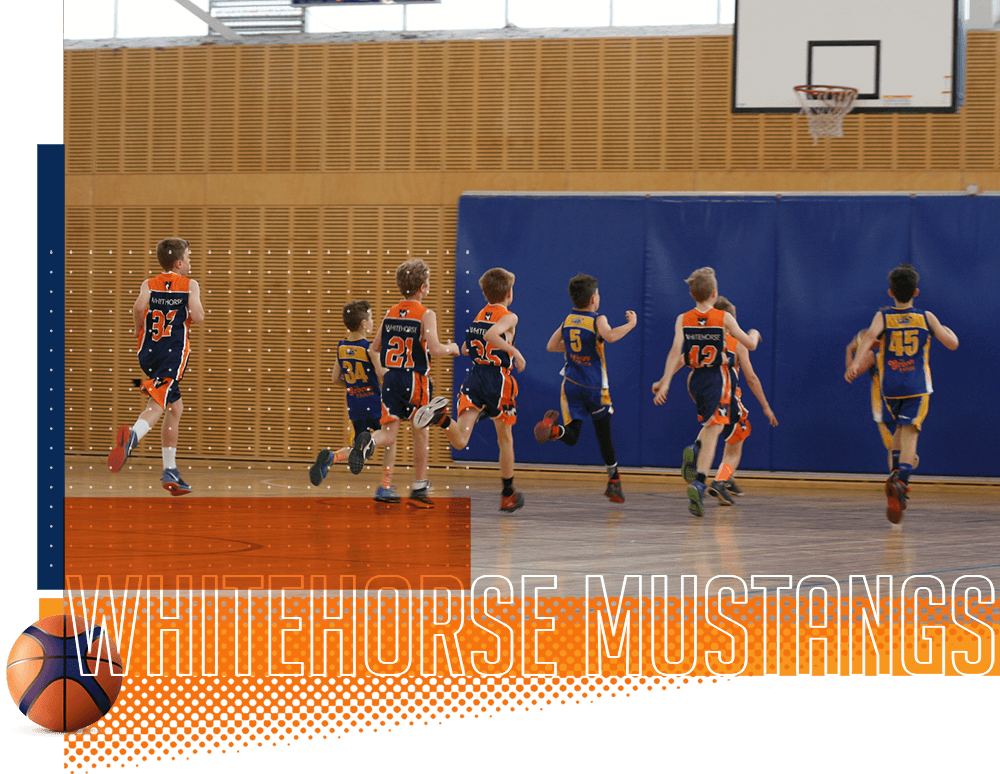
Child Safe Policies
Working With Children
It is a requirement of the Department of Justice, Basketball Victoria, Whitehorse Amateur Basketball Association and all Associations we play in, that all Coaches, Team Managers, Supervisors and Committee Members over the age of 18 hold a current Working with Children Check. Basketball Victoria, the Whitehorse Amateur Basketball Association and the competitions we play in require anybody needing a WWCC to sign a Basketball Victoria Members Protection Statutory Declaration. It is a Department of Education requirement that all Coaches, Managers and Supervisors hold a current Working with Children Certificate when using school premises for training and games. This is applicable to everyone 18 years or over.
Working with Children Checks are free for voluntary positions and are valid for 5 years. The Basketball Victoria Members Protection Declaration is valid for 2.5 years. These must be current for the entire season. Anyone unable to provide these details will be in breach of the Working with Children laws and unable to work in any of our Association’s positions.
If you need to apply for a WWCC or your WWCC is about to expire, these can be done online very quickly via the link https://www.workingwithchildren.vic.gov.au/.
A WWCC is free for all voluntary positions and can be used in any areas involving children.
